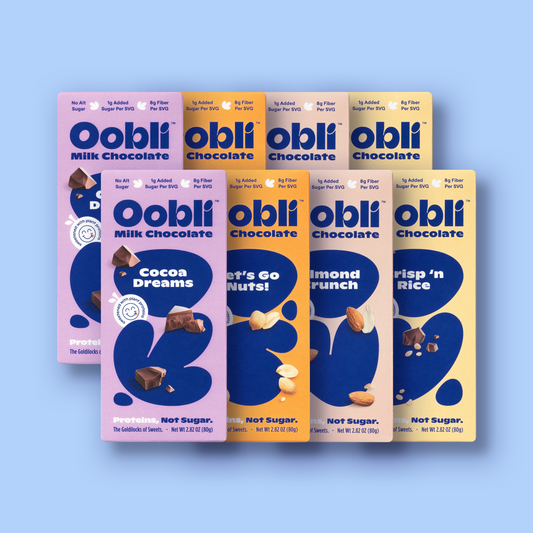It’s no secret that we live in a world overwhelmed by sugar. From our dependence on refined-sugar-sweetened treats to processed foods loaded with sneaky sugars disguised by scientific-sounding names, it’s everywhere, and it’s wreaking havoc on our bodies. Overconsumption of sugar has been linked to a range of serious health issues, including high blood pressure, obesity and type 2 diabetes. Research also suggests sugar may contribute to a host of other effects—physiological and neurological—that we're only beginning to fully understand.
But change is in the air. Fueled by the rise of wellness culture, more people are paying closer attention to their overall health and making intentional choices to support it. Among the most popular shifts? Cutting back on added sugar and replacing it with better alternatives. One natural sweetener rising to the top is stevia. But what exactly is stevia, and more importantly: is it really a healthier option than old-fashioned sugarcane?
What is stevia?
Stevia is a plant-based sugar substitute made from the leaves of the Stevia rebaudiana plant, which is native to South America. This shrub-like plant has been used by indigenous peoples for centuries, but its love affair with the U.S. is far more recent.
After gaining recognition from the U.S. Food and Drug Administration (FDA) in 2008, stevia quickly surged in popularity as an alternative to traditional sugar. One of stevia’s standout qualities is that it’s up to 300–400 times sweeter than table sugar, meaning a little goes a very long way.
Most people recognize it in those iconic green packets found in restaurants and grocery stores, but stevia also comes in several other forms including liquid drops, dissolvable tablets and baking-friendly blends.
Benefits and risks
At first glance, stevia offers some compelling health advantages over both refined sugar and many artificial sweeteners. As a plant-based sweetener that’s naturally free of calories and carbohydrates, stevia has become a popular choice for those managing weight, blood sugar levels or looking to reduce overall sugar intake. And because it doesn’t raise blood glucose or insulin levels, stevia is considered safe for people with diabetes and is often included in diabetic-friendly diets. Some studies even suggest stevia may offer antioxidant and anti-inflammatory properties, making it an appealing option for the wellness-focused crowd. But despite its glowing reputation, stevia isn't without its caveats, especially when it comes to how it's consumed.
In 2008, the U.S. Food and Drug Administration (FDA) granted GRAS (Generally Recognized as Safe) status to purified steviol glycosides, the sweet compounds extracted from the stevia leaf. However, this approval applies only to extracts that are at least 95% pure. This means that not all products labeled "stevia" are created equal. Many commercially available stevia products are highly processed and may include other chemical sweeteners or sugars that can come with their own set of health concerns.
Potential Risks and Side Effects
-
Digestive issues: Some people report bloating, gas or diarrhea, often linked more to the sugar alcohols mixed with stevia than the stevia itself.
-
Cardiovascular concerns: Recent studies have raised concerns about erythritol, which is often added to stevia blends, and its potential to increase the risk of blood clotting, heart attacks and strokes, especially when consumed in large amounts.
-
Gut microbiome disruption: Preliminary research suggests stevia may impact gut bacteria, though the long-term effects are still unclear.
Moderate consumption of purified stevia products is generally considered safe. But due to variability in product formulations, it's important to read labels carefully and be mindful of added ingredients.
Is stevia healthy?
Stevia may be a healthier option than refined sugar—especially when used in its purer forms and in moderation. But like most sugar alternatives, the devil is in the details. Highly processed stevia products don’t offer the same benefits as whole-leaf or minimally refined versions and, in some cases, may come with added risks. When in doubt, it’s best to consult a healthcare provider, especially if you have underlying conditions or consume stevia regularly.
While stevia remains more accessible and widely used for now, sweet proteins are emerging as a promising next generation of natural sweeteners. Thanks to advances in precision fermentation, they offer a cleaner, nature-identical sweetness that doesn’t spike blood sugar, making them an enticing alternative to both sugar and stevia.





